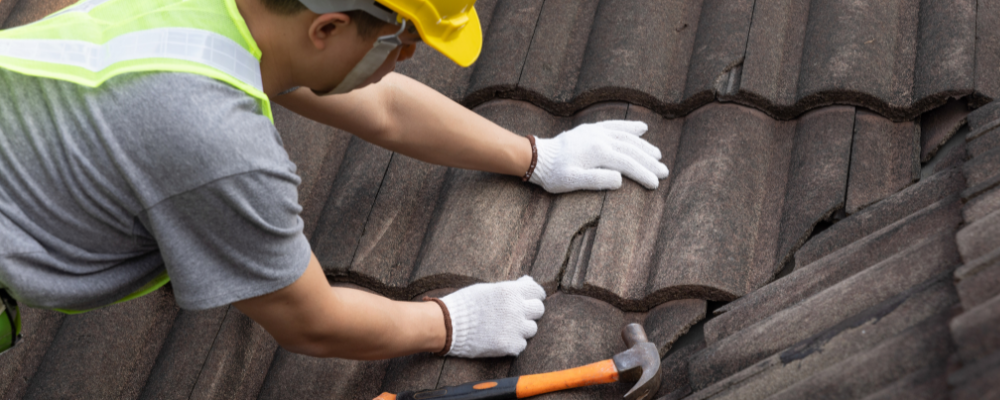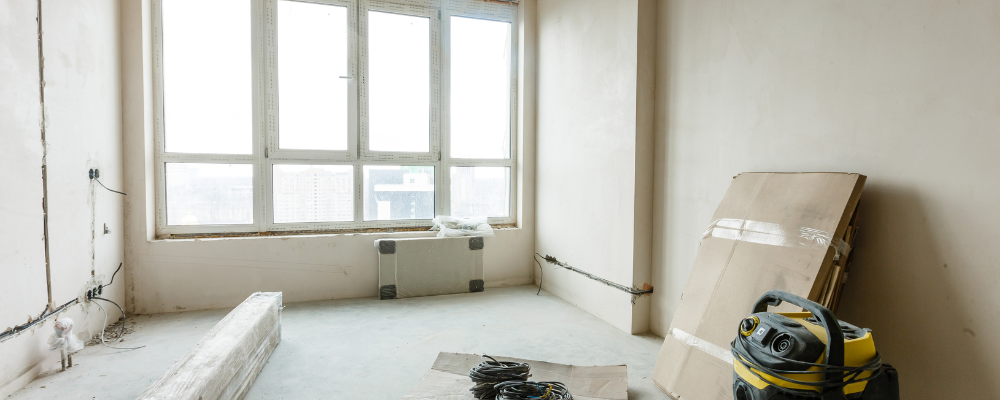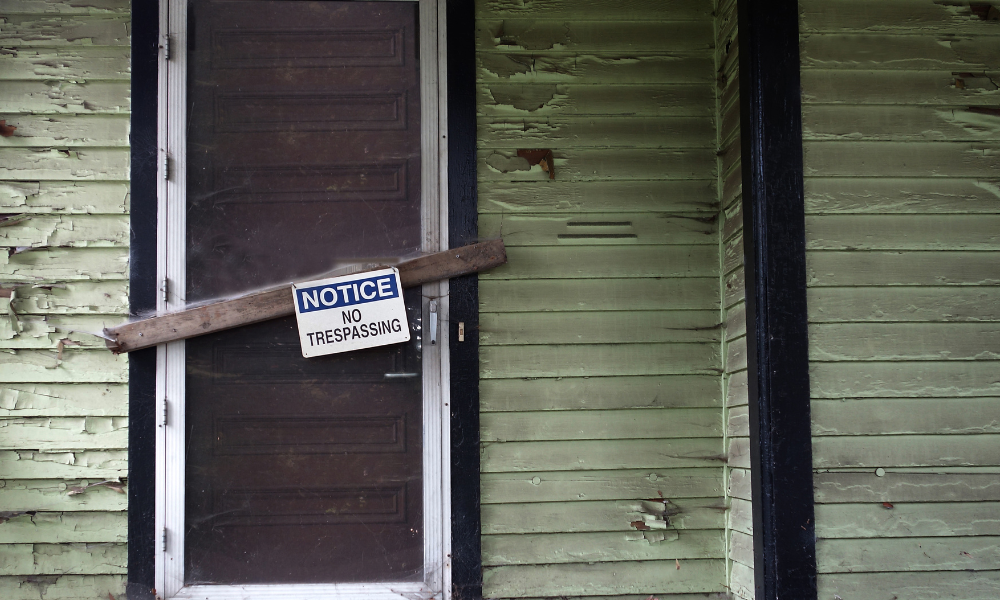The Short Answer
Foreclosed and vacant properties can often be left to fall into disrepair, which can lead to problems in communities. Property preservation companies help improve communities by maintaining and safeguarding these properties, so that they remain aesthetically and functionally in tact. Property preservation companies therefore need to carry out repairs, maintenance, inspections and more, to make this happen.
If you’re starting a property preservation company, here are the steps you should take:
Step 1: Research the industry and find gaps in your local market
Step 2: Establish a business structure and get the right insurance
Step 3: Define your service offerings clearly
Step 4: Purchase the relevant supplies
Step 5: Focus on continuous improvement to stay relevant
Jump To
What Is Property Preservation?
Before we delve into the process of setting up a property preservation company, let’s take a step back and start by answering the question, what is property preservation? Property preservation is a crucial aspect of the real estate industry that involves maintaining and safeguarding vacant or occupied foreclosed properties.
Essentially, the goal of property preservation is just as the name suggests, to ensure that foreclosed properties remain in good condition, both aesthetically and structurally, from when these properties are foreclosed to the time when they are sold again.
Property preservation companies typically work with banks and asset management companies to carry out the necessary repairs, maintenance, inspections, insurance claims and other necessary tasks. Some of these properties are insured by the Federal Housing Administration.

How To Start A Property Preservation Company
The property preservation sector in real estate provides a lucrative career path for those who can become a successful provider. By following a few key steps, you will be on your way towards starting a successful property preservation company that is established in the industry as a reliable provider.
Step 1: Do Your Homework
The path to success in a property preservation company is similar to many other endeavors. It all starts with educating yourself about the property preservation industry, and what it entails to make a successful business. Then researching the local market to identify the demand for property preservation businesses, and determine what the local lenders, investors and other key potential clients’ needs are.
Part of doing your homework includes analyzing the competitive landscape by looking at existing property preservation companies in the area. The goal of this is to find gaps in the market that your company can fill with the services you’ll provide.
Step 2: Establish A Structure
Once you’ve determined which gap your business can fill in the market, you will need to establish a legal structure for the business. For example, a proprietorship, LLC or a corporation. You will also need to look into the legal requirements of operating in your area. Some areas require permits, licenses and insurance, which are key components of the business structure overall.
Insurance is a large part of this type of business, because there is a high risk of injury when it comes to home repairs, maintenance and other services that this business requires to preserve each foreclosed property. As such, a business plan is a vital element of establishing the right structure and details for the business.
Step 3: Define Your Services
It’s important to define your service offerings clearly, this is what will set you apart and help you find clients. Your services may include securing properties, cleaning, repairs, and overall maintenance. Consider niche services that set your company apart, such as eco-friendly preservation solutions.
Once these have been clearly defined, you can set up a website and create an online presence using these services as a drawcard. An online presence is key to establishing a business that is viewed as both credible and reliable. It’s also important to outline these services in your preservation contract, which will give clients a clear understanding of your offerings.
Step 4: Connect With Key Industry Players
The next step on your journey to setting up a successful property preservation business is forming relationships with key players in the industry. This means reaching out to major banks, real estate agents, investors, property management firms and so on. The idea is to begin establishing yourself as a reliable service provider in the property preservation industry. You can apply to property preservation networks in the area to help increase your visibility and boost your credibility.
Step 4: Purchase Relevant Supplies
A property preservation business requires a variety of supplies that will be key to completing the preservation projects. This includes Personal Protective Equipment (PPE) and much more. These supplies will be integral to the success of the business and need to be budgeted for.
Step 5: Continuous Improvement
Regularly assess and improve your processes to stay competitive and meet changing industry demands. It’s also a good idea to participate in training programs, workshops, and seminars to improve your skills and stay informed about the latest industry trends and best practices. Making sure that you continuously improve your business and stay on top of relevant industry trends will help you create longevity and innovation in your property preservation business.

Benefits Of Starting A Property Preservation Business
Starting a property preservation business can come with a host of benefits. Some of these benefits are good for professional growth, and some can lead to financial growth. Either way, these advantages are worth considering when you’re starting a property preservation business. Let’s take a closer look…
- Sustained Demand: The demand for property preservation services remains consistent, due to the fact that real estate, particularly foreclosures and vacant properties, are always around and often in need of preservation. This means that it’s likely that the demand for a property preservation business won’t wane and will instead remain constant.
- Steady Cash Flow: Property preservation often requires recurring tasks, which means that the business can generate a steady source of income from these tasks. Regular property maintenance can lead to a more predictable cash flow for your business.
- Community Improvement: Property preservation businesses play a key role in improving local communities by lifting both the aesthetic and the integrity of the neighborhood through the prevention of rundown, vacant properties. This means that your property preservation business could be a key player in helping with community improvement and stability.
- Variety of Services: A property preservation business covers a wide range of services, which means that there are various avenues to tap into to generate more profit by fulfilling more needs in the industry. From property maintenance to security and more, these services are diverse and can be a great opportunity for property preservation business owners.
- Weather Economic Storms: Property preservation is a necessary service, and this applies even in times of economic downturn. In fact, during these times, property preservation can be even more important, so these businesses can experience a busier time.
Risks Involved When Starting A Property Preservation Business
While there are many benefits to starting a property preservation business, there are various risks to bear in mind as well. Correctly planning for these risks is the key to ensuring that you’ve planned adequately and can mitigate them.
- Competitive Industry: The property preservation industry can be quite competitive, and this means there are multiple players in the industry which can make things more difficult. A competitive industry means that you’ll need to make sure that your business stands out from others and provides a service that is unique or a brand that stands out.
- Regulatory Compliance: Property preservation involves compliance with various local, state, and federal regulations. Failure to adhere to these regulations can result in legal consequences and damage to your business reputation.
- Non-Paying Clients: As with any business, non-paying clients can pose a serious risk to a property preservation business. As such, your business should have clear and airtight payment terms, and due diligence should be a high priority for each client.
- Property Conditions: Some properties may be in worse condition than others or have hidden problems that your business only discovers later. These properties can be costly to repair and lead to unexpected costs with project delays. For a property preservation business, it’s important to do thorough property inspections ahead of time to avoid any surprises.
Is The Need For Property Preservation Companies Increasing or Decreasing?

The good news, for those starting their own property preservation business, is that there will always be a need for property preservation. Foreclosed and vacant properties are always around, which means that the demand for property preservation is always significant. However, during the pandemic, the property preservation industry had to adjust to a significantly lower level of foreclosed properties. As a result, the need for property preservation companies lowered, however since then activity has picked up again and property preservation companies has increased.
While 2022 saw challenges for property preservation companies to find property preservation vendor and inspectors to complete the property inspections they require but 2023 saw an uptick in inspectors and this worked out favor of property preservation companies. At the time of writing, there is an anticipated increase in demand for property preservation companies based on borrowers’ inability to pay back their mortgages, thanks to prolonged high mortgage rates.
In other words, the more people struggle to repay their mortgages, the higher the demand for businesses who can preserve distressed properties.
Final Tips For Succeeding With This Business Model
Succeeding in the property preservation business requires a commitment to providing a quality service and adapting to changing market conditions. Here are a few tips to help you succeed in your business:
- Conduct thorough research on the local real estate market, including your competitors, the demand for a property preservation company, market trends and foreclosed property trends and more. Use this information to determine your business plan, and to figure out where and when to open your business.
- Focus on quality, and providing a reliable service that is consistent. Customer satisfaction is the key to creating a good name for your business in the industry and building trust and credibility.
- Market your business across multiple channels and create a strong brand to help you stand out from the crowd. This includes developing a website to display your services and expertise. In the competitive property preservation industry, marketing is key to getting clients and making the business a success.
- Build strong relationships with each property preservation vendor, they will be an integral part of your business. Property preservation vendor options will do your property inspections, and other tasks that you’ll need, many of which are recurring. So, it’s important to form relationships with reliable vendors who can help you make your business a success.

